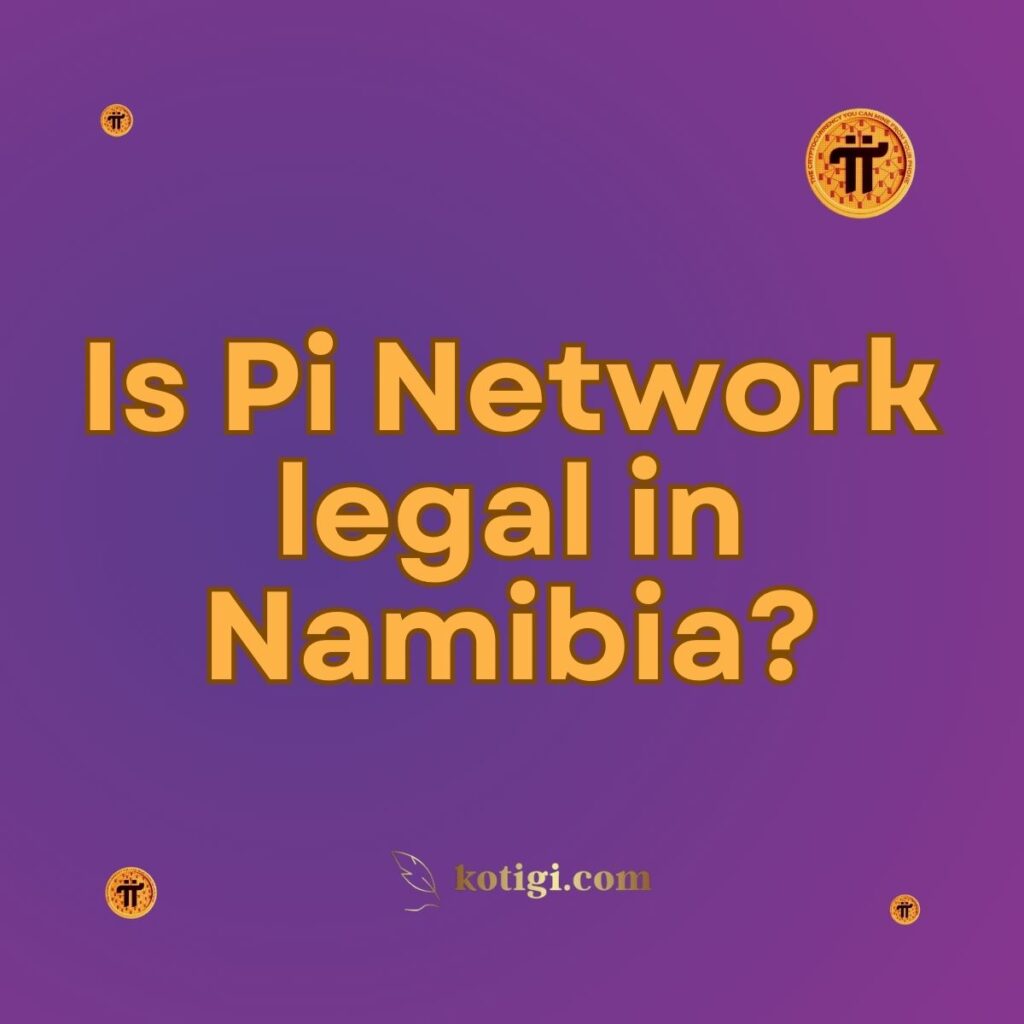
Is Pi Network legal in Namibia?
Yes, Pi Network is legal in Namibia. Although Namibia has not implemented specific regulations for Pi Network or cryptocurrencies in general, the use of digital assets is not prohibited, and users are expected to comply with the country’s existing financial and anti-money laundering regulations.
Introduction
With the rise of digital currencies, questions about the legality of cryptocurrencies like Pi Network have become common across the globe. Namibia is no exception. In this article, we explore whether Pi Network is legal in Namibia, examining the country’s regulatory framework and what it means for users of the network.
Cryptocurrency Regulations in Namibia
Namibia, like many other African countries, is still in the early stages of developing comprehensive regulations for cryptocurrencies. While there are no explicit laws prohibiting the use of cryptocurrencies, the country’s financial authorities have taken a cautious stance toward their widespread adoption.
Namibia’s Approach to Cryptocurrencies
The Bank of Namibia (BoN) has not fully endorsed the use of cryptocurrencies, including Pi Network, as legal tender. However, it has not outlawed the use of digital currencies either. Namibians can use and engage with cryptocurrencies, provided they comply with existing financial laws, including anti-money laundering (AML) and tax regulations.
Tax Treatment of Cryptocurrencies
Currently, Namibia has no clear guidelines on the taxation of cryptocurrency transactions. However, it is advisable for Pi Network users to keep detailed records of their transactions, as any income generated from cryptocurrency activities could potentially be subject to tax in the future.
Financial Authority Oversight
The BoN, Namibia’s central financial authority, has issued warnings regarding the risks associated with cryptocurrency use. While these warnings emphasize the lack of consumer protections, they do not prohibit the use of Pi Network or other digital currencies.
Pi Network Operations in Namibia
Pi Network operates in Namibia without any specific legal restrictions. As more Namibians become interested in mining Pi, it’s essential to understand how this network functions within the country’s existing financial landscape.
Growing Popularity of Pi Network
Pi Network has seen a steady increase in users within Namibia, driven by the platform’s ease of use and mobile mining capabilities. Many Namibians are looking to explore alternative financial systems, and Pi’s low barrier to entry has made it an attractive option.
KYC Compliance and Pi Network
Namibian users of Pi Network are required to complete the Know Your Customer (KYC) process, which helps ensure the platform’s compliance with global AML standards. Completing KYC also aligns with Namibia’s financial regulations, providing users with greater legal security when using the network.
Legal Considerations for Pi Network Users
Although Pi Network is not banned in Namibia, users must be aware of certain legal considerations to ensure they remain compliant with local financial laws. These include adhering to anti-money laundering regulations and preparing for potential future taxation policies.
Anti-Money Laundering (AML) Regulations
Namibia has implemented AML laws to combat financial crimes such as money laundering and terrorism financing. Pi Network users must ensure they do not engage in illicit activities through the platform, as Namibia’s authorities have the right to investigate suspicious transactions.
Consumer Protection and Risks
The BoN has issued statements warning Namibians about the risks associated with cryptocurrencies, including potential losses due to volatility and lack of consumer protection. While Pi Network itself has mechanisms like KYC to protect users, individuals are responsible for safeguarding their digital assets.
Potential for Regulatory Changes
Namibia’s financial landscape is evolving, and with the growing use of cryptocurrencies, there is potential for future regulations. Pi Network users should stay informed about changes to the legal environment, especially as governments worldwide take steps to regulate digital currencies more strictly.
Comparisons with Other African Countries
Namibia’s regulatory stance on Pi Network and cryptocurrencies is similar to that of other African countries. However, comparing Namibia’s approach to neighboring countries like South Africa and Botswana offers valuable insights.
Cryptocurrencies in South Africa
South Africa has a more developed regulatory framework for cryptocurrencies, though it still doesn’t classify them as legal tender. South African authorities have also issued similar warnings about the risks of cryptocurrency investments but have not outlawed their use.
Cryptocurrencies in Botswana
Botswana, like Namibia, lacks comprehensive cryptocurrency regulations. However, its financial authorities have taken a neutral stance, much like Namibia’s BoN, allowing for the use of digital currencies under existing financial laws.
The Future of Pi Network in Namibia
As cryptocurrencies become more mainstream, the legal landscape for digital currencies like Pi Network may change in Namibia. Whether these changes involve tighter regulations or greater acceptance, the future of Pi Network in Namibia looks promising as long as users stay compliant with the law.
Potential Integration with Namibia’s Financial System
There is a growing interest in blockchain technology in Namibia, which may lead to future integration of cryptocurrencies like Pi Network into the country’s financial system. This could provide more opportunities for Namibians to use Pi for daily transactions and business activities.
Encouraging Blockchain Innovation
Namibia has the potential to become a hub for blockchain innovation in Southern Africa. By adopting favorable policies, the government could encourage more blockchain-based projects and allow Pi Network to grow within a regulated framework.
How to Stay Compliant with Namibian Laws?
For Namibian Pi Network users, staying compliant with local laws is essential to avoid legal issues. This includes ensuring all earnings from Pi are reported to authorities if required, and that users understand the current legal framework.
Adherence to KYC and AML Regulations
Ensuring KYC verification and adherence to AML regulations will safeguard Namibian Pi Network users from potential legal troubles. Namibian authorities are keen on preventing financial crimes, and users need to comply with all necessary checks on the platform.
Keeping Records for Potential Taxation
Although cryptocurrency taxation is not currently enforced in Namibia, it is important for users to keep records of their earnings and transactions. This will make it easier to comply with any future tax regulations that may apply to digital assets like Pi.
Conclusion
Pi Network is legal in Namibia, with no specific laws prohibiting its use. However, users must remain cautious and ensure they comply with local regulations, particularly concerning AML requirements. Namibia’s approach to cryptocurrency is evolving, and it’s essential for users to stay informed about any changes that could impact their participation in Pi Network. As the legal landscape continues to shift, Pi Network users in Namibia can enjoy the benefits of the platform, provided they remain compliant with existing laws.
Key Takeaways
- Pi Network is legal in Namibia, with no laws specifically targeting its use.
- Namibia’s Financial Authorities, such as the Bank of Namibia, have issued warnings but not prohibitions regarding cryptocurrency use.
- Users must comply with anti-money laundering regulations, ensuring that their activities on Pi Network are legitimate.
- Pi Network’s KYC process aligns with Namibia’s AML laws, ensuring user compliance with financial regulations.
- Future regulations may arise, so Namibian users should stay informed about changes to cryptocurrency laws.




